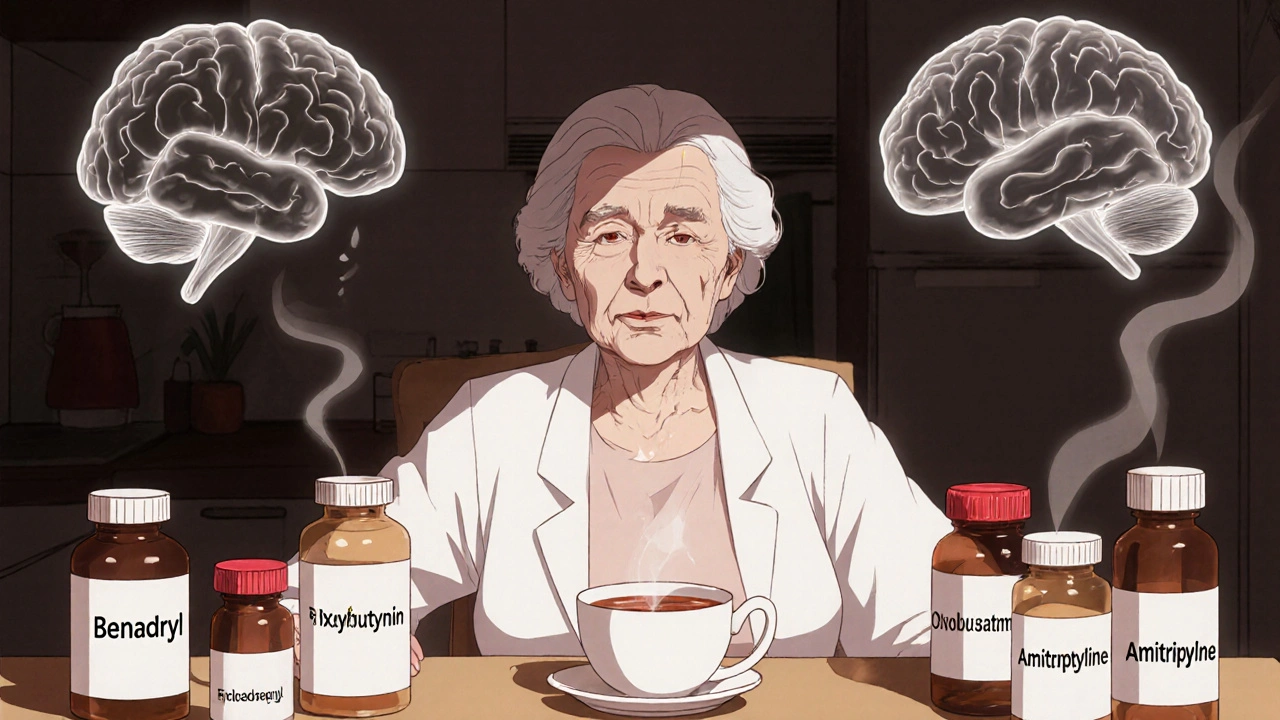Dementia Risk: What Increases It and How to Reduce It
When we talk about dementia risk, the likelihood of developing memory loss and cognitive decline that interferes with daily life. Also known as cognitive decline risk, it’s not just about getting older—it’s about what you do, what you take, and how your body responds over time. Many people think dementia is inevitable with age, but research shows nearly 40% of cases could be prevented or delayed with smarter choices. It’s not magic. It’s mostly about managing the things you can control.
One big factor often ignored is medication safety, how certain drugs, especially when used long-term or in combination, can quietly harm brain function. For example, long-term use of benzodiazepines for anxiety or sleep has been linked to higher dementia risk in older adults. Same with some anticholinergic drugs—common in allergies, depression, and overactive bladder—that block acetylcholine, a key brain chemical for memory. Even something as simple as taking duplicate meds after specialist visits can add up. One study tracked seniors on five or more brain-affecting drugs and found their risk jumped significantly. You don’t need to stop everything, but you do need to know what’s in your medicine cabinet and why. Then there’s brain health, the overall condition of your nervous system, shaped by diet, movement, sleep, and social connection. It’s not about taking a miracle supplement. It’s about consistent habits: walking daily, sleeping seven hours, staying connected to people, and keeping blood pressure and blood sugar in check. High blood pressure isn’t just a heart issue—it’s a brain issue too. Same with type 2 diabetes. These aren’t side notes. They’re central players in dementia risk. And don’t forget aging, the natural process of growing older, which changes how your body processes drugs and repairs brain cells. As you age, your liver and kidneys slow down. That means drugs stick around longer. What was safe at 50 might be risky at 70. That’s why medication reviews with your doctor aren’t optional—they’re essential.
What you’ll find in the posts below isn’t a list of fear tactics. It’s a practical toolkit. You’ll see how certain medications—like MAOIs or benzodiazepines—can affect your brain over time, how to avoid dangerous drug overlaps that increase confusion, and why managing conditions like thyroid disorders or high cholesterol matters more than you think. These aren’t random articles. They’re all connected to one thing: protecting your mind as you age. The goal isn’t to live forever. It’s to stay sharp, clear-headed, and in control for as long as possible.
Anticholinergics: How These Common Medications Affect Memory and Cause Dry Mouth
Anticholinergic medications like oxybutynin and Benadryl can cause memory loss, brain shrinkage, and chronic dry mouth-especially in older adults. Learn which drugs are most risky and what safer alternatives exist.
